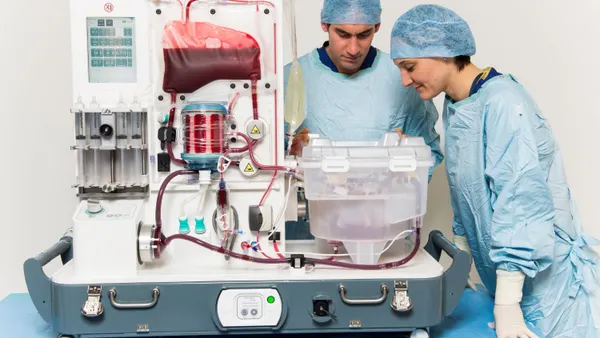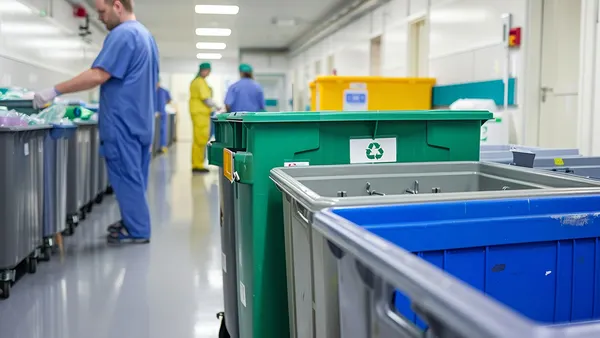Dive Brief:
- Hologic has received regulatory clearance to sell an artificial intelligence (AI)-enabled cervical cancer screening system in the U.S.
- The product, the Genius Digital Diagnostics System, creates digital images of Pap test slides and uses an AI algorithm to identify cells that cytologists and pathologists should review.
- Hologic’s clearance, announced on Thursday, comes days after BD partnered with Techcyte to promote a digital, AI-enabled cervical cancer screening test that is yet to come to market.
Dive Insight:
Pap smears remain part of the cervical cancer screening toolkit despite the availability of more sensitive human papillomavirus assays. The Pap process requires pathologists to use microscopes to view cells on glass slides. Studies have found variability in how pathologists interpret slides.
“It's been a very manual and labor-intensive process,” Hologic CEO Stephen MacMillan said in a Thursday quarterly results conference call with investors. MacMillan recalled hearing about the “workflow of cytology” and how it “was one of the biggest concerns” in a meeting with Quest Diagnostics almost 10 years ago
Hologic’s system changes the workflow. Glass slides are digitally imaged and analyzed by AI trained to identify cells that cytologists and pathologists should review. The system could enable staff to focus on cells that could be precancerous or cancerous and to view slides remotely and collaborate on cases.
According to Hologic, a study linked the technology to a “28% reduction in false negatives of high-grade squamous intraepithelial and more severe lesions compared to microscopic review.” The reduction in false negatives could translate into the detection of more cancers.
William Blair analysts see potential for the technology.
“Management went so far as to say this could be the biggest improvement in cytology in 40 years, and we do not believe this is hyperbole. Not only is Genius the first of its kind to receive FDA approval but will also help bring ‘new life’ to this business for customers,” the analysts wrote in a note to investors.
BD, which competes with Hologic for the Pap smear market, has also identified AI as a way to improve the process. The company recently partnered with Techcyte on a digital, AI-enabled system. However, Hologic, which expects to make its system available commercially in the U.S. early this year, has a head start. Genius is already available in Europe and “starting to drive ... growth,” MacMillan said.
Globally, Hologic reported a 5% drop in cytology and perinatal sales in its latest quarterly results. Revenues grew internationally, but those gains were wiped out by an almost 11% drop in U.S. sales. With other parts of the diagnostic business also contracting on lower COVID-19 test demand, Hologic’s sales decreased around 6% overall in the company’s fiscal first quarter.











